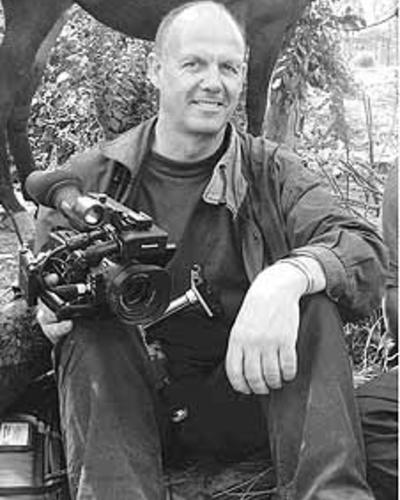Introductory course in anthropological filmmaking
The Department of Cultural History invites students to Introductory course in anthropological filmmaking with Leonard Kamerling, Curator of Film at the University of Alaska Museum of the North. The course is intended for students who are planning to use film as part of their fieldwork in anthropology or other similar disciplines. Sign up before 8 March.

Main content
The course
At the start of this class, your phone was just a phone with a camera for shooting photos and videos of your friends and family. After the class you can look at it as a tool to understand and interpret your world, a way to make sense of data, a new way to “see” and construct stories to study and share.
In this four day intensive course you will get an introduction to visual anthropology, you will learn how to make a film with your phone as a camera, and we will discuss shooting techniques and editing. Most importantly the course will address how to make film with an anthropological eye, and how the video camera can be used as a method for research and dissemination. During the course you will learn more about ethical issues and regulations when you are using film recordings as part of your research.
Course outline
Day 1 - Our visual literacy, how we understand the language of stories told in pictures and sound. Through the viewing of film clips, discussion and group exercises, we will explore the connection between contemporary visual anthropology, visual story-telling and the century of experimentation that has shaped the way we see and use media today. Included will be excerpts of the instructor’s ethnographic film work from Alaska.
Day 2 - Class projects - shoot a movie! The difference between shooting video and making a film. How to use your phone, tablet and other digital devices to record and interpret the culture and data around you. Learning to see the three aspects of filming - 1. The external world, 2. The inner world of emotions, 3. The un-obvious and unexpected. Where do you put the camera?
Day 3 - Critiques of class footage and editing. Wide shot, medium shot, close up – the basic grammar of visual story telling. How do we talk about video in both objective and subjective ways? What are we looking for? What makes a film useful or authentic? Basic editing with iPhone or iPad. The “less is more” strategy for shooting and editing.
Day 4 - Showing and critique of edited films. Ethical challenges, what to film, what not to film and what not to put online. Informed consent from people you film. The next step – using your new skills to make more complex stories. As examples we will show excerpts from student made at the Visual Cultural Studies program at UiT.
How to register
The students who sign up for the course should have finished their introductory courses in anthropology (or similar). There are limited places at the course, and senior students of anthropology (BA or MA) who are planning to do fieldwork will be prioritized. We do however encourage all students who are interested to sign up.
The course will be in english.

